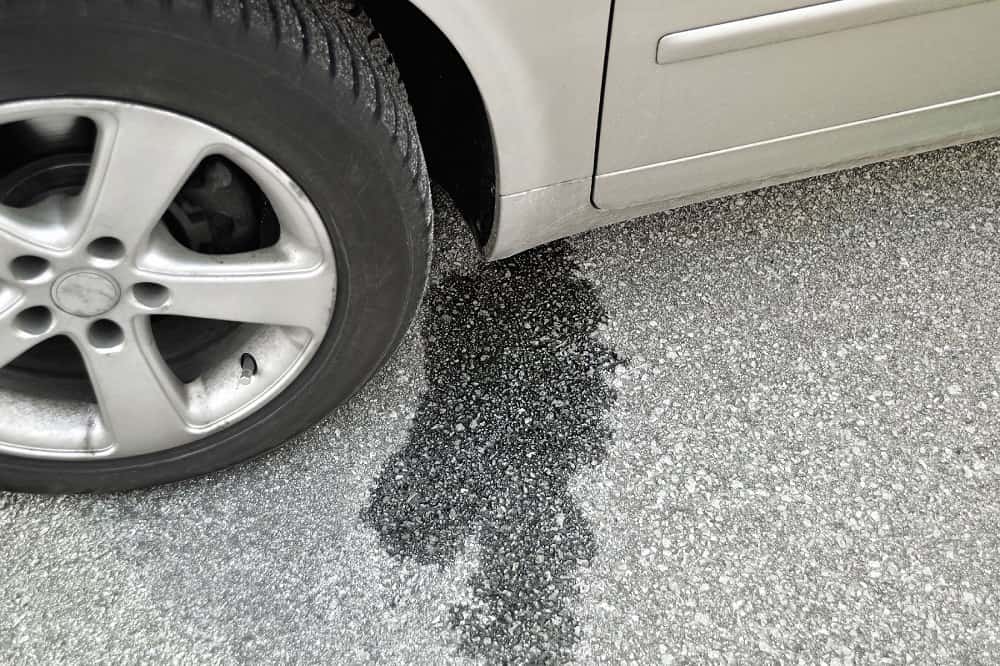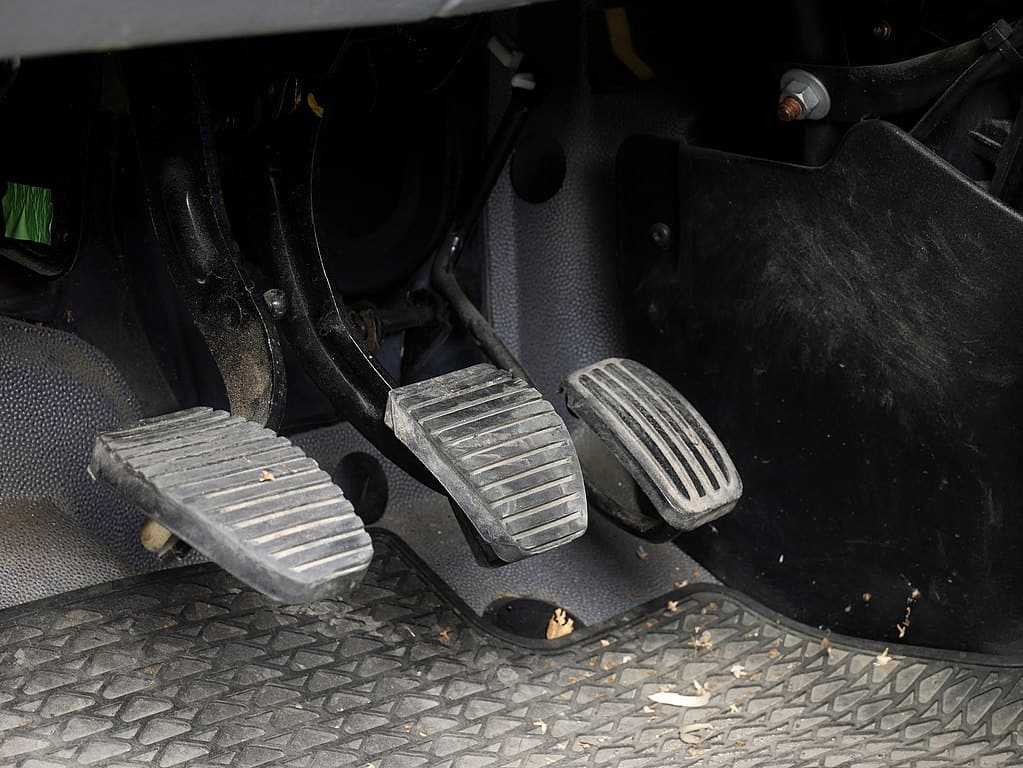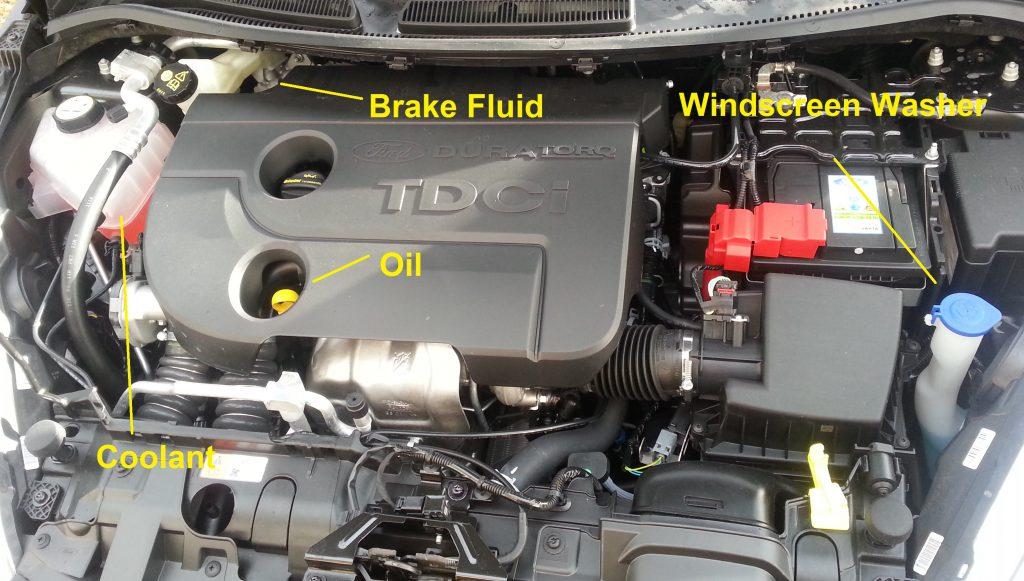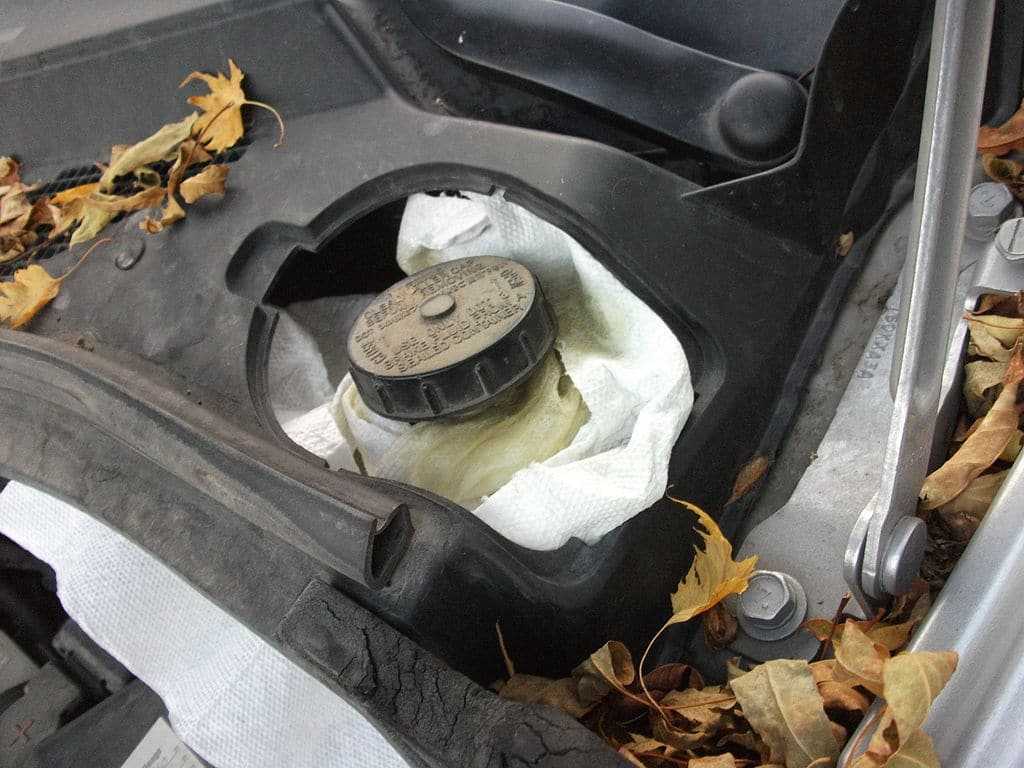Many people, especially new car owners, may not consider leaking brake fluid as something to worry about, but it has a severe impact on the overall brake performance. Brake fluid leak causes damage to the brake system, leading to brake failure and accidents. This matter requires immediate attention to ensure your safety and well-being on the road.
Learning what causes brake fluid to leak and leaking symptoms will surely aid in handling the situation in a better way.
Contents
Most Commons Reasons for Brake Fluid Leak
The first step toward how to fix brake fluid leak is to learn about the causes that prompt brake fluid leaking under middle of car.
Damage in the brake system
Faults in the brake system, including brake lines or fittings, can cause brake fluid leak. Whether there is a hole in the brake lines or damage in the brake fittings – both hurt the brake system. It can even reach a point when the brake stops working. It can lead to a life-threatening situation if not resolved immediately.
Faulty master cylinder
When there is a brake fluid leak under car, the defective master cylinder is usually the main culprit. However, slave cylinder issues can also be responsible for leaking with the fluid puddle under the car.

Loose bleeder valves
Bleeder bolts are the part of brake calipers. Its primary function is to remove excess fluid while servicing the other brake system components.
Sometimes, the mechanic does not tighten the valves enough after the brake fluid is flush and the loose valves can leak the fluid.
Bad wheel cylinder
If any car with drum-style brakes has brake fluid on the wall of any wheel, a bad wheel cylinder is causing this. This is also a common reason for fluid leakage.
Piston is worn
Due to operating in high-temperature conditions and experiencing friction with the cylinder wall, the piston is easily worn and damaged. If your car’s piston is worn out, it can cause brake fluid to overflow and leak out. Therefore, regular vehicle maintenance will help car owners detect damage early and fix it promptly.
5 Brake Fluid Leak Symptoms to be Aware of
Car brake systems always work in harsh conditions and are prone to high friction, so problems can be inevitable, including brake fluid leaks.
Therefore, early recognition of signs of brake fluid leaks will help vehicle owners have timely solutions. How do you tell if your brakes are leaking? Keep an eye out for these symptoms:
1. The brake warning light turns on
Cars usually come with a warning light located in the instrument cluster. When this light is on, it indicates a leak in the braking system. When the brake warning light flashes or stays on, it means hydraulic pressure has been lost on one side of the brake system or low brake fluid (due to a leak).
In both cases, it is necessary to check the brake fluid level in the master cylinder. Adding brake fluid to the master cylinder to make up the shortfall may be a temporary solution. But if the fault is due to a leak, the brake fluid will be reduced and the warning light will turn on again.
Therefore, drivers need to take their vehicles for inspection to promptly handle when the brake light comes on.
2. Fluid puddle under the vehicle
How to find brake fluid leak? If there is a small puddle under the car or there are fluid drops on or near the wheels, it’s likely to be a fluid leak issue. Leakage in both brake master cylinder and brake lines will leave drops of fluid underneath the car.
For some people, it becomes difficult to distinguish between brake fluid, transmission fluid, and motor oil. Remember that when new, brake fluid is clear or light yellow but the complexion darkens with time. Upon touching this oil, you will get a greasy feel and it smells like fish oil.
- Green liquid: Coolant leak
- Red fluid: Transmission oil leak
- Yellow-brown to black liquid: Engine oil leak
- The fluid is clear, from yellow to dark brown: Brake fluid leak
The final step is to check the car’s brake fluid reservoir. If that is not full, it must have a leak that you have to find out.
3. Unsatisfactory brake performance
Several issues can be responsible for poor brake performance and brake fluid leak is one of them. If the driver does not feel right about the whole car brake system, they should check the brake fluid reservoir immediately for the leak.
4. Squishy brake pedal
When you push the brake pedal to stop or reduce the car speed, it will go down only a little before becoming completely firm. But if the brake pedal feels soft or spongy, there are chances of trapped air in the brake lines.
Usually, the proper functioning of the brake line depends on it being full of brake fluid. In the event of a leak, air enters the brake line, making the brake pedals feel mushy. It can cause accidents when pressed down.

5. Brake pedal sink
This one is almost similar to the earlier symptom and often occurs at the same time. When the leakage reaches a severe stage or the brake master cylinder starts having issues, brake pedals will go down all the way. It happens because the brakes cannot function without sufficient brake fluid.
Nonfunctional brakes are a direct threat to the passengers. Never drive a car if this symptom appears before starting the journey.
If you notice this while driving, slow down using gears or emergency brakes, and get out of the vehicle after stopping it. get the car fixed before driving it again.
Watch more:
After discovering that car brake fluid is leaking, car owners should not handle it themselves at home. Because fixing or changing the brake fluid is relatively complicated. Therefore, drivers need to take their cars to a trusted center or garage for timely inspection and repair.
Additionally, as recommended by auto manufacturers, brake fluid should be changed after 2 – 3 years of use or every 30,000 – 50,000km.
And, drivers should regularly check brake fluid conditions. When you see the brake fluid level below the “MIN” mark, add more fluid. When you see that the fluid quality has degraded, turning dark or black, you should replace the oil with a new one.
In case of a brake fluid leak, you need to take the vehicle for inspection to find the cause and have a solution.
Fixing A Brake Fluid Leak In Easy Steps
Step 1: Locating the Leak

To fix car leaking brake fluid, first step you should do is locating the leak. So in this step you may want to ask “Where does brake fluid leak from?”. Well, the answer is inspecting rubber, metal, gaskets, and joints under the hood and also checking the threads spreading over the metal brake tubing by open eyes as you can find almost the leaks there.
If you still can’t trace any signs of leaking brake fluid, check the lines from the master cylinder. Repeat this for each and every wheel. On the back, look out for rusty areas or rust around the brake lines. Now take a flashlight and observe under your car to see if there are any puddles, drips, spray patterns, or other wet areas.
Step 2: Reconstruct for the Wheel Cylinders, Caliper Piston, and Master Cylinder
If the sources of leaking brake fluid are master cylinder, caliper piston, you can always use an affordable brake fluid leak repair kit. However, buying a new caliper is more viable than rebuilding one.
Rebuild kits from different manufacturers are available in the market. You have to have a total replacement if the rubber brake hoses are leaking.
Step 3: When the Metal Brake Lines are Leaking
A more integrated approach is required if the leaks are rooted in the metal brake lines. The pipe bender and metal tubing you are going to use must be the same size. Instead of just repairing the leaky portion, replace the whole line.
Once you have replaced the lines, follow the manufacturers’ instruction to adjust the torque accordingly. Unless you do it properly, the fittings could lose and result in decreasing brake pressure.
Never pursue a brake fluid repair job without having a complete understanding. To the point instructions do not mean that it’s a one-step job. Before you disintegrate the whole brake fluid system, make sure dirt can’t make way.
Old or dirty brake fluid can damage your brake system permanently. So, have a look on the brake fluid color to see whether it’s clear or not. If it looks dirty, replace the fluid right away.
Watch the video to see How to Fix Leaking Break lines:
Conclusion
All the mentioned symptoms are grave, so don’t ignore any of them. No matter what symptom appears, check the car and fix the issue before driving. Although it is possible to diagnose a brake fluid leak from these symptoms, a mechanic is the best person for identifying and fixing these issues.



